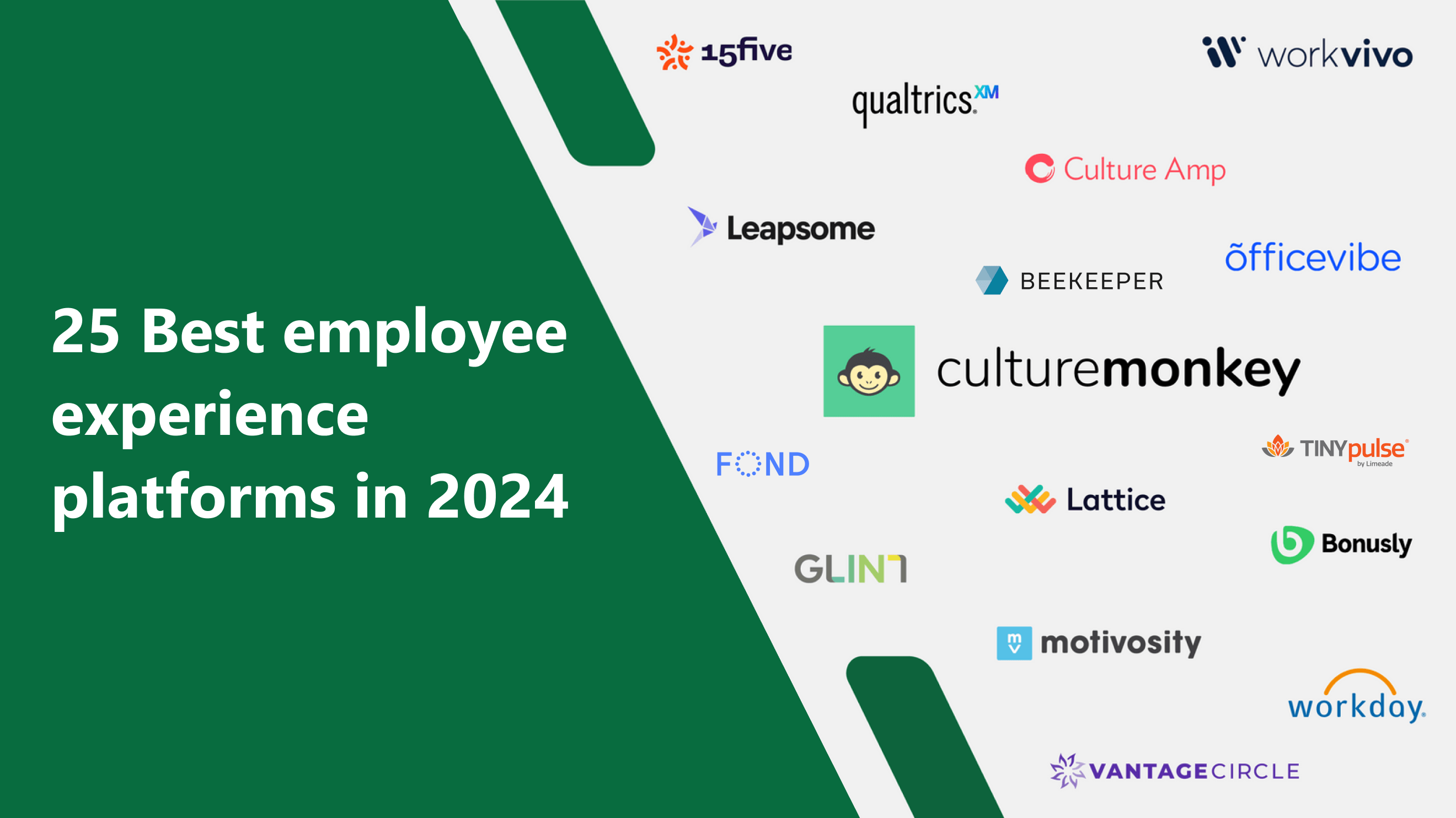CultureMonkey Blog
Employee Engagement Articles

How to create an effective work engagement survey: best practices, questions, and tips
A work engagement survey provides crucial insights into how connected employees feel to their work and the organization. By identifying key engagement drivers, it helps leaders create a more motivated, productive, and satisfied workforce. It also helps reduce turnover rates and increase performance.
What are some examples of live feedback in the workplace? Why do they matter?
Live feedback in the workplace refers to immediate responses given to employees regarding their performance or behavior. Unlike traditional feedback, which is typically shared during scheduled reviews, live feedback happens in real-time and gives employees instant ideas about their performance.
25+ Key employee feedback statistics for 2024: Trends, data, and insights that matter
Employee feedback is the process through which employees provide insights, opinions, and evaluations about their experiences in the workplace. It encompasses various forms, including informal conversations, structured surveys, performance reviews, and peer assessments in the workplace.
Why and how to use an anonymous comment box for honest employee feedback
The anonymous feedback method allows employees to share their thoughts, concerns, or suggestions without revealing their identity. By ensuring confidentiality, this approach encourages more candid responses, as employees feel safe from potential backlash allowing them to provide unfiltered feedback.
How to give effective feedback about coworker: Top 35+ examples and best practices
Feedback about a coworker refers to the constructive or positive input you provide regarding a colleague's performance, behavior, or contributions in the workplace. This type of feedback is meant to improve team dynamics, enhance collaboration, support growth, and boost morale in the workplace.
What is culture fit: How does it impact your company culture?
A good culture fit enhances job satisfaction, teamwork, and overall performance, creating a harmonious and productive work atmosphere. Essentially, it's the magical connection where the individual and business culture of the company resonate on the same wavelength.
25 Best employee experience platforms in 2024
Elevate your workforce's experience with the top 25 employee experience platforms of 2024. Unlock seamless onboarding, personalized learning, and real-time feedback to create a culture of growth and engagement. Transform your workplace into a hub of innovation and satisfaction!
45+ Mental health games and activities for workplace to thrive in 2024
Proper mental health for employees in the workplace is of paramount importance, as it profoundly impacts both individual well-being and the overall success of the organization. It brings multiple benefits, such as high productivity, reduced absenteeism, employee engagement, and more.
Allyship in the workplace: Where inclusion meets action for impact
Allyship in the workplace refers to the practice of individuals, particularly those in positions of privilege and power, actively and empathetically supporting and advocating for their colleagues from marginalized or underrepresented groups.
70+ Employee of the month ideas to boost employee morale in 2024
Discover innovative and meaningful employee of the month ideas to recognize and appreciate outstanding contributions, fostering a culture of appreciation and motivation in your workplace.
Employee engagement action plan template: Top examples to improve employee satisfaction at work
An employee engagement action plan is a strategic document designed to enhance the involvement, satisfaction, and motivation of employees within an organization. It outlines specific actions and initiatives aimed at fostering a positive work environment and improving overall employee morale.s
How to let someone go in a workplace: Examples and best practices to help part on good terms
Letting someone go is never easy, but it's an inevitable part of leadership. Learn how to handle this sensitive task with respect and professionalism. We'll cover best practices to ensure the process is smooth, dignified, and sets both the employee and company on a positive path forward.
What is peer feedback: Definition, examples, and top tips
Peer feedback, the constructive input from colleagues, is a powerful tool for personal and professional growth. Dive into our comprehensive guide to understand its definition, see real-world examples in action, and gain invaluable tips on how to harness its potential for enhancing teamwork
Engagement survey promotion: Best practices to get higher survey response rates in 2024
Struggling with low participation in engagement surveys? Discover the challenges and top strategies to effectively promote your surveys, ensuring higher response rates. From leadership endorsements to creative incentives, these proven tactics will help you gather meaningful feedback.
What are examples of effective team dynamics?
Effective team dynamics are the heart of successful collaboration. Explore real-world examples, from clear communication to shared goals, and learn how to cultivate them for a harmonious, high-performing team that achieves exceptional results.
Who are undervalued employees: Top strategies to groom them as leaders in 2024
Uncover the potential of undervalued employees who silently excel but lack recognition in your workspace. Learn strategies to identify, engage, and develop them into future leaders, boosting team morale and overall company success. Ensure no talent goes unnoticed in your organization.
What is employee innovation: Components, best practices, and examples to get inspiration from
This blog explores the essential components, best practices, and inspiring examples to help you nurture a culture where creativity and collaboration thrives. Learn how empowering your team can lead to groundbreaking ideas that drive your business forward.
Company culture assessment: Definition, benefits and questions to ask your employees
Understand how to identify strengths and weaknesses, enhance employee engagement, and implement effective changes. By leveraging these insights, organizations can improve their workplace culture, boost employee satisfaction, and drive long-term success.
Workplace processes: Definition, types and tips to improve the process in your organization
Optimize workplace processes—operational, management, support, and compliance—to boost efficiency, cut costs, and drive success. Start optimizing your processes today!
Overworked employees: 15 Tips to follow as a HR leader in 2024
Feeling your team is sprinting through a marathon? Overwork is a daily reality. As HR leaders, it’s our duty to fix this. In this blog, uncover 15 tips to transform your overworked office into a productivity powerhouse, ensuring your entire workforce remains happy, healthy, and engaged.
How to describe company culture: 35+ Examples
Explore how company culture impacts your workplace with real-world examples. From daily interactions to leadership styles, uncover the elements that define your company's culture. Learn to articulate and enhance your culture to attract the right talent and keep your team motivated and engaged.
What are the 20+ types of biases at work a leader should measure and combat: A complete guide
Bias in the workplace refers to unfair or prejudiced attitudes and behaviors that affect decision-making, interactions, and opportunities. It can manifest in various forms, including gender, race, age, and other types of discrimination.
Change management definition: Best practices for smoother culture transition
Change management is the structured approach to transitioning individuals, teams, and organizations from a current state to a desired future state. It involves preparing, supporting, and equipping people to handle changes in their work environment effectively.
What is GROW model coaching and how to use it as a manager?
The GROW model is a structured coaching framework designed to help individuals and teams achieve their goals effectively. The acronym GROW stands for Goal, Reality, Options, and Will, each representing a critical step in the coaching process.
























